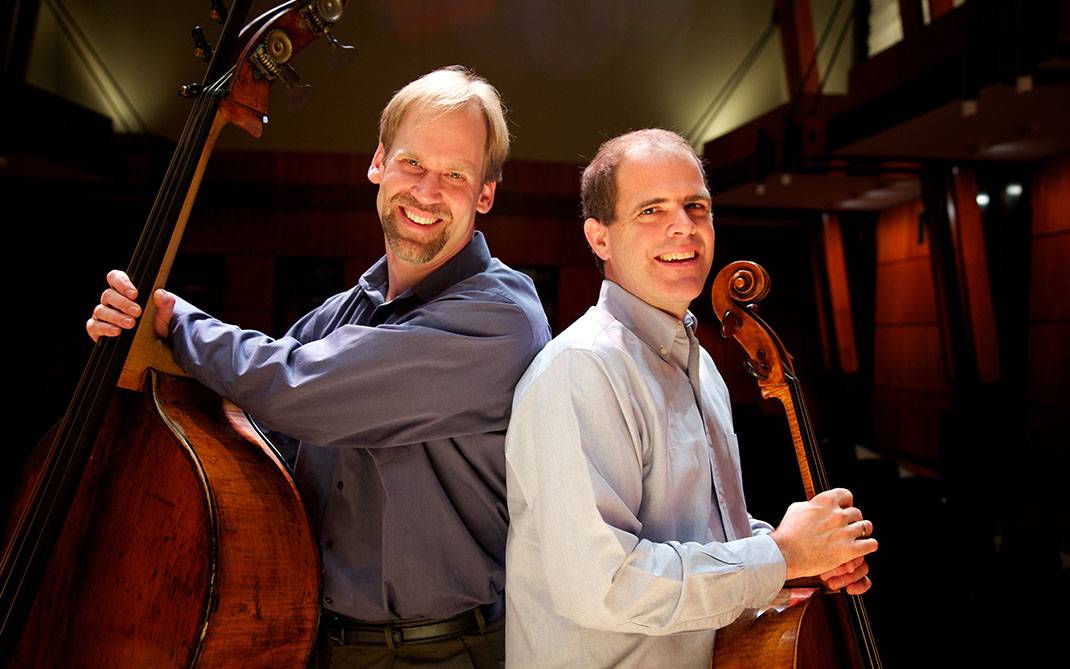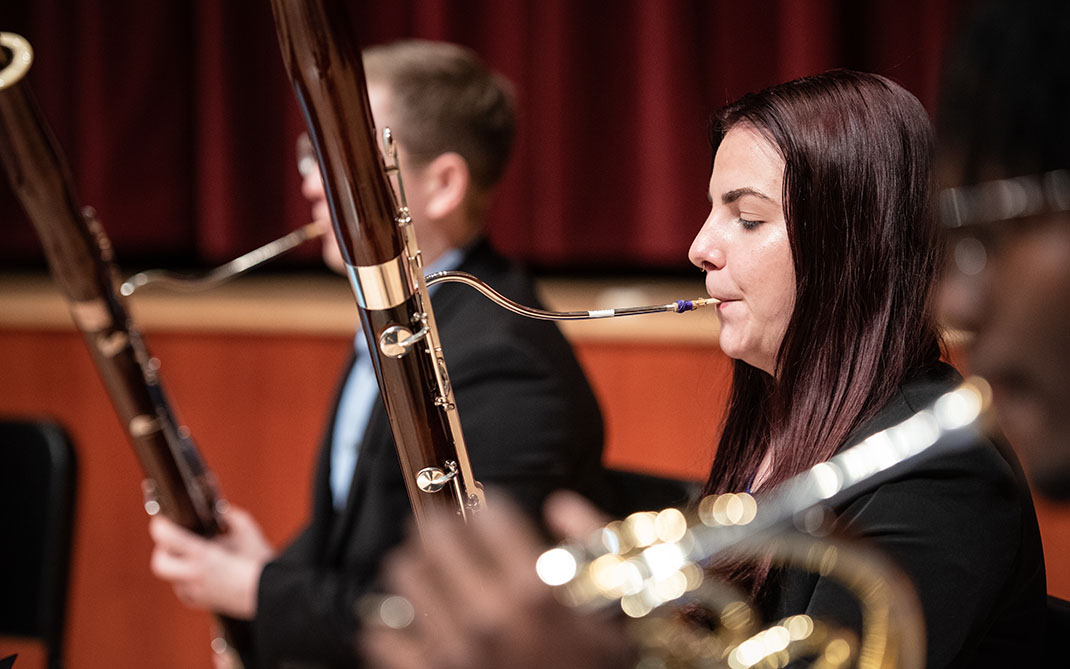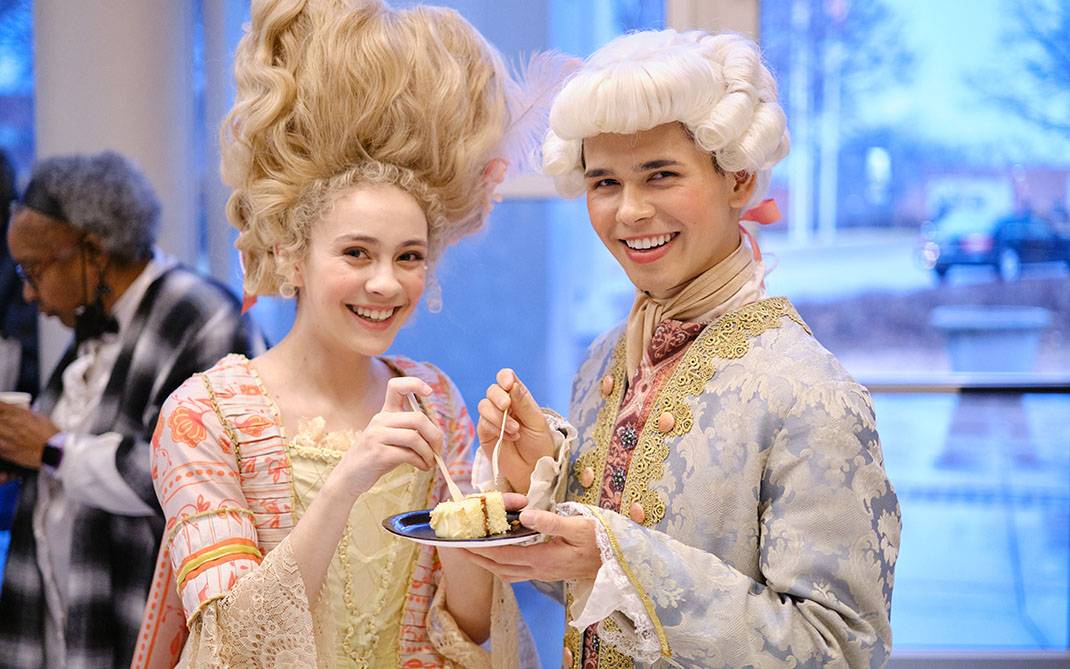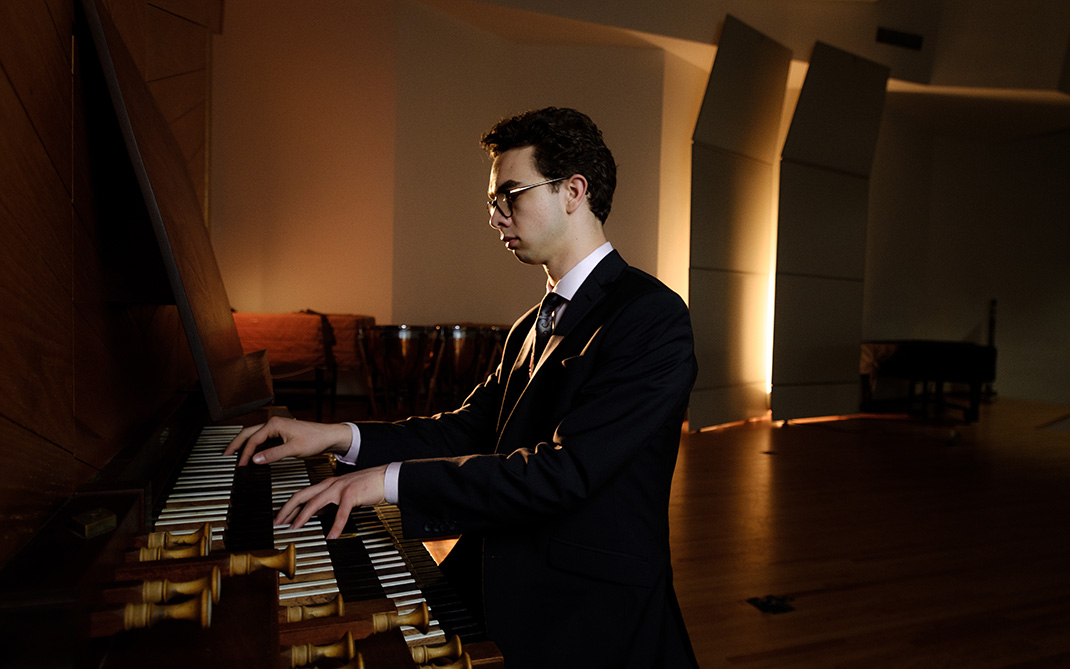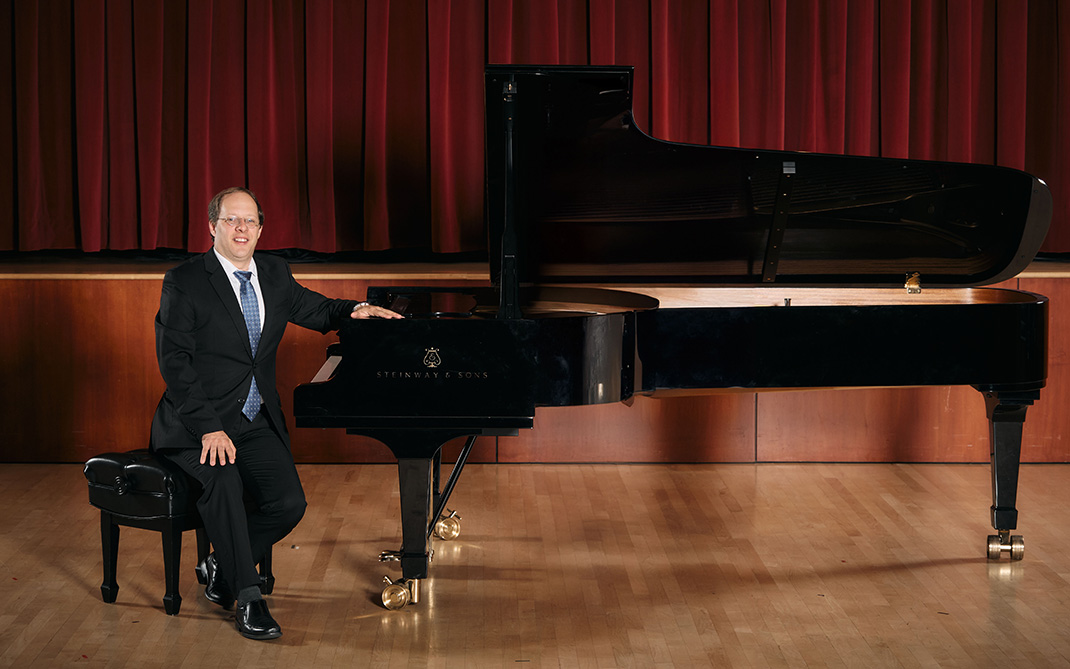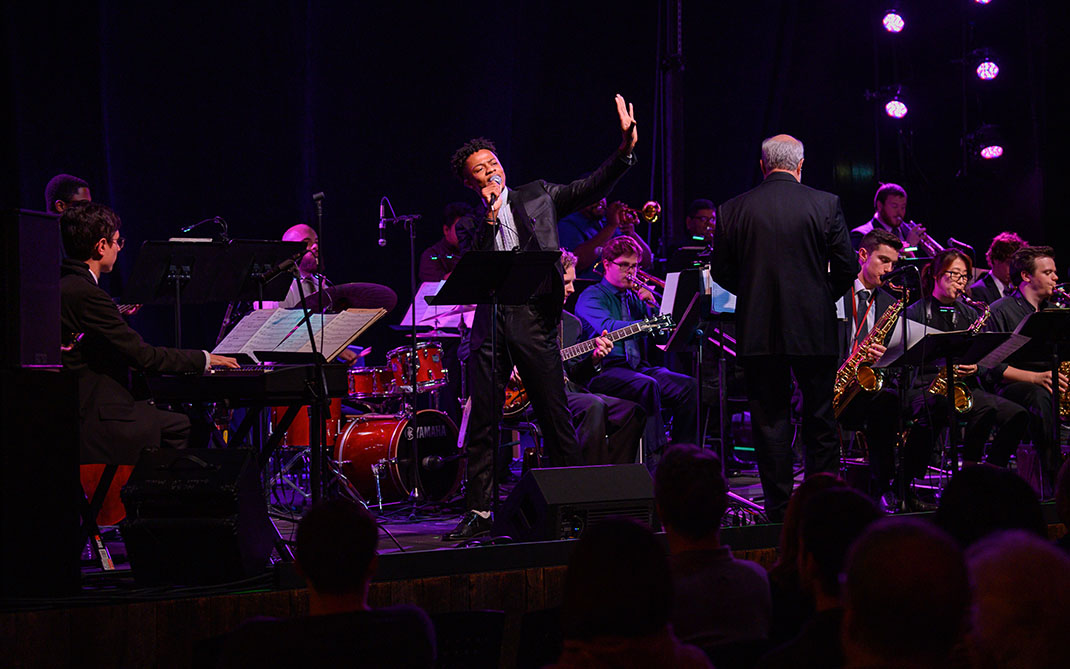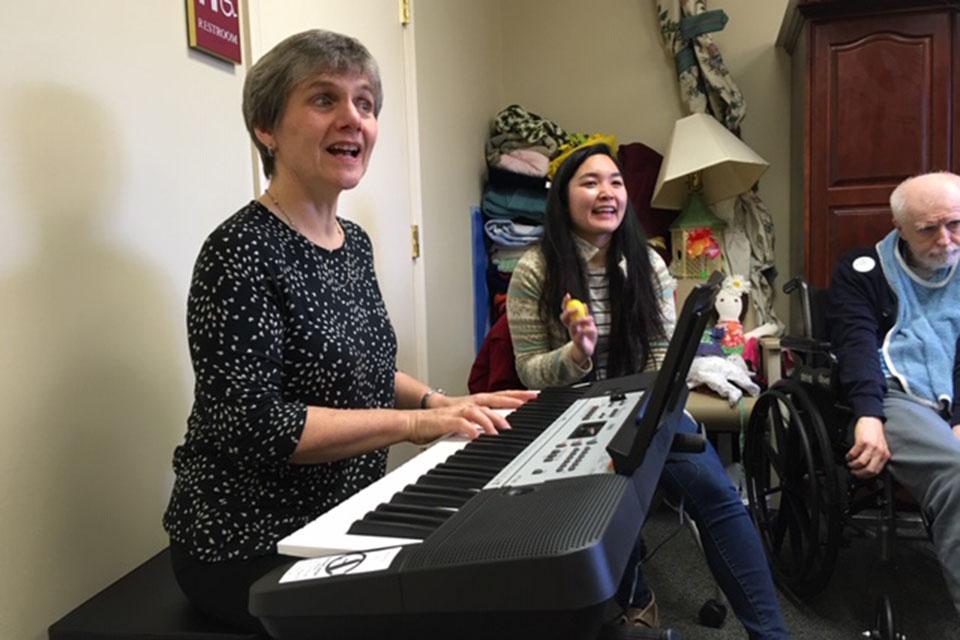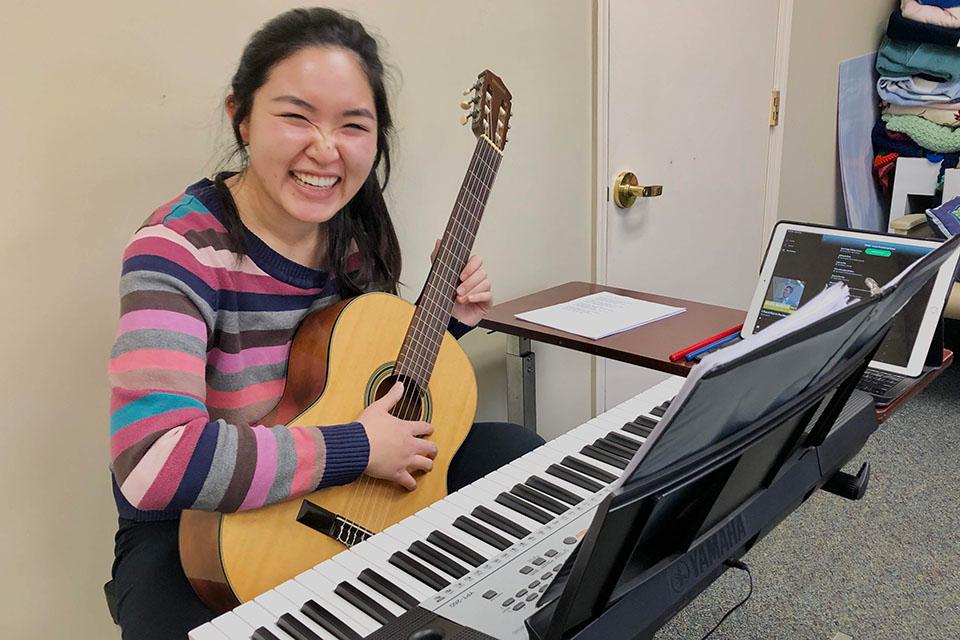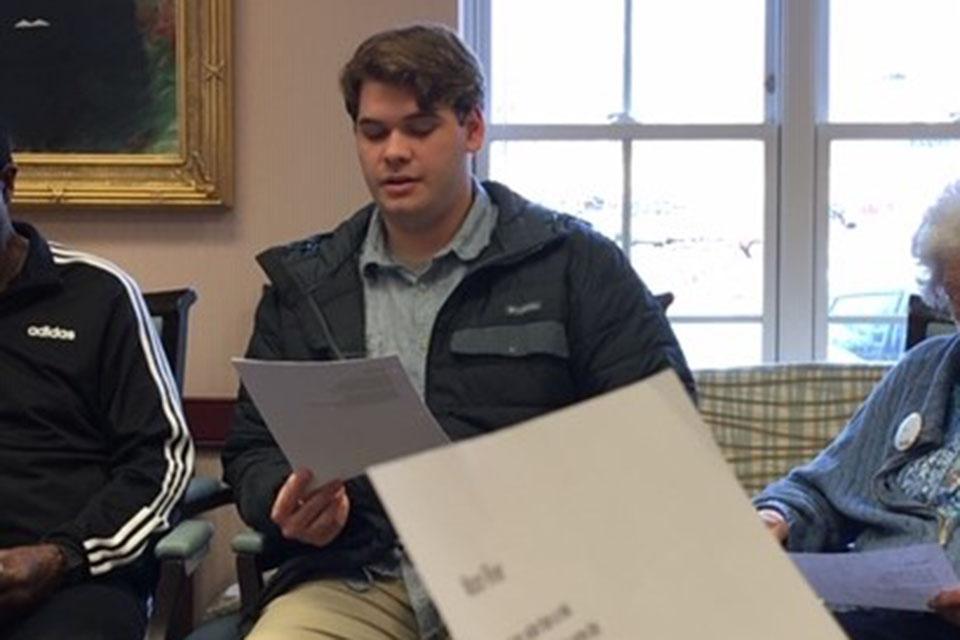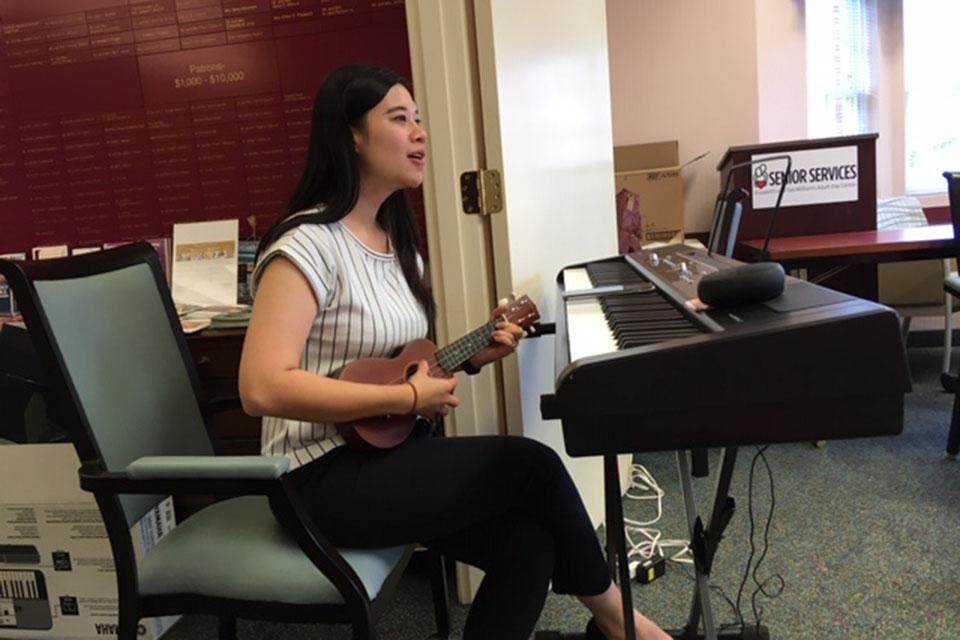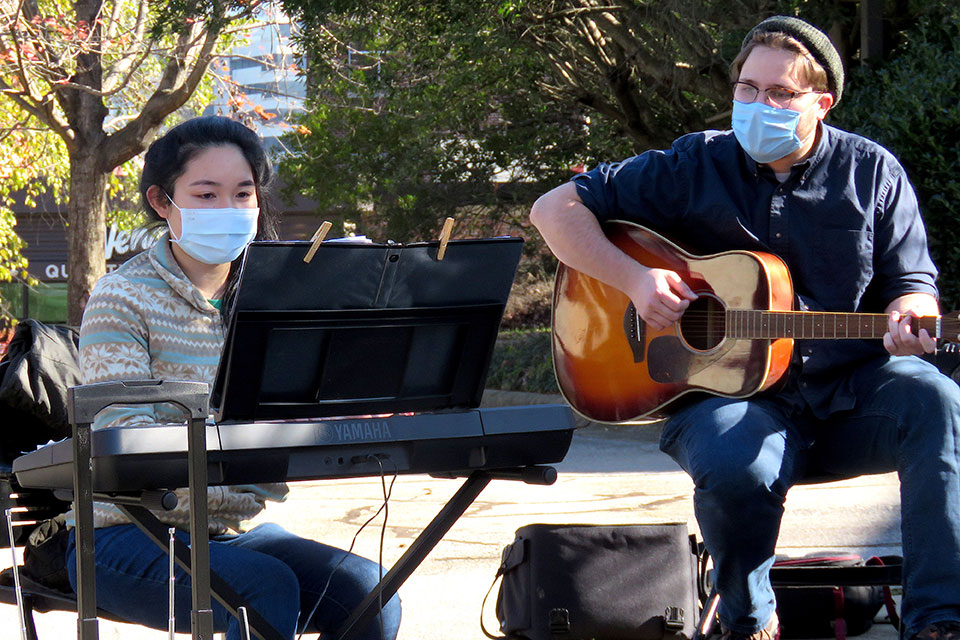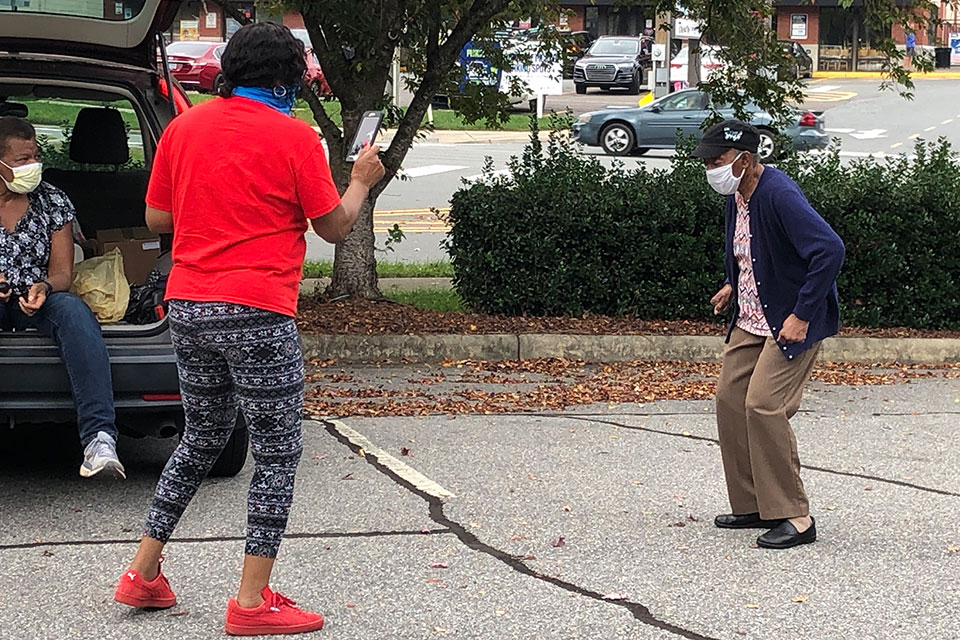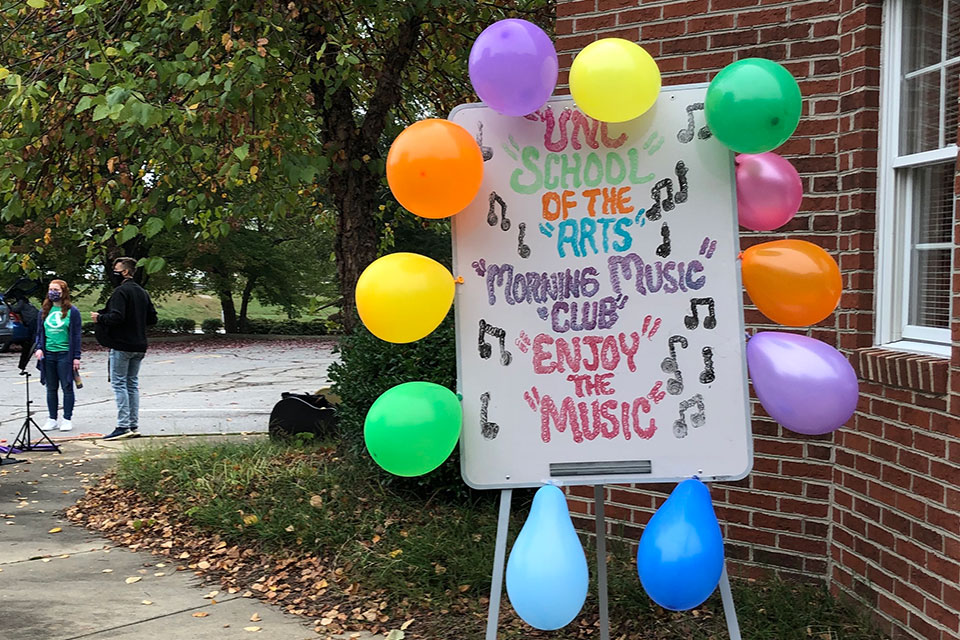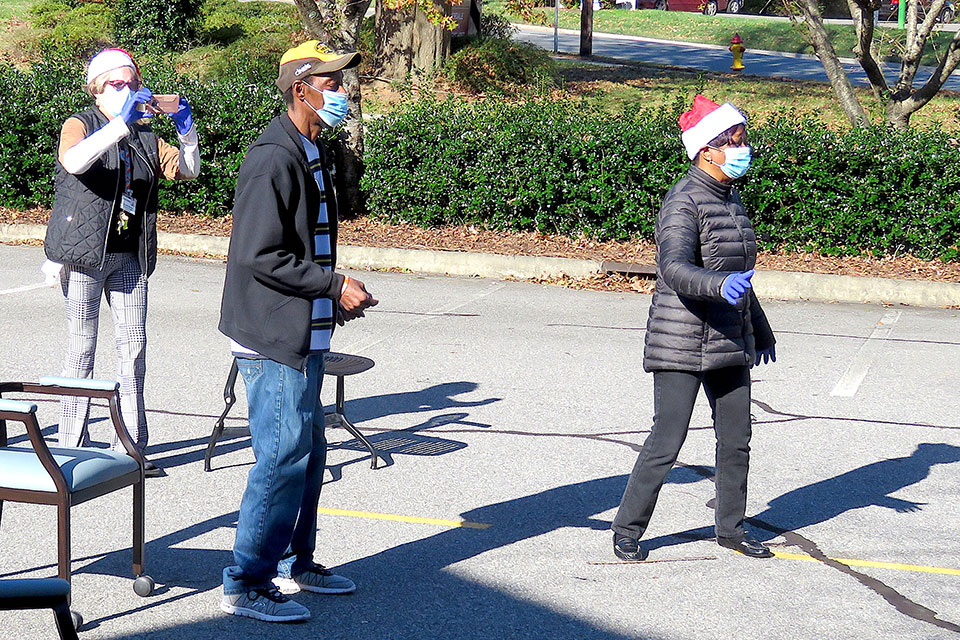UNCSA faculty, students utilize interactive music-making to engage seniors living with dementia
During Intensive Arts in 2017, Allison Gagnon, Associate Professor of Collaborative Piano, showed the documentary "Alive Inside: A Story of Music and Memory" to students in cooperation with the School of Filmmaking. The film highlights social worker Dan Cohen’s efforts to demonstrate music's ability to reach those who have become uncommunicative, restoring a sense of self to those living with dementia. There was immediate response from students who attended, and thus began a quest to connect students and seniors.
"It's important for young musicians to be aware of the power of music in this context," Gagnon says. That power, explored in "Alive Inside," includes the ability to tap into peoples' lasting memory for music, even as they lose other cognitive abilities to dementia. The film shows how personalized playlists can awaken a connection and provide moments of joy.
Inspired and informed by her own experiences with both her parents, mobilizing these concepts has become something of a purpose for Gagnon. To that end, she decided to formalize her research and to implement a pilot project in interactive music-making by partnering with ArtistCorps, UNCSA's community engagement initiative.
And although the COVID-19 pandemic has placed limitations on the program since it began in Fall 2019, the team has still found ways to push forward and continue to expand the impact of their work.

Learn more about the Morning Music Club and how the project came about from Allison Gagnon, Rebecca Nussbaum and staff of the Williams Adult Day Center.
Putting research into practice
In 2018-19 Gagnon applied for, and was awarded, a semester of reassigned time for Fall 2019, allowing her time away from teaching to conduct extensive research on the subject of interactive music-making in dementia care. The semester of reassigned time, typically granted to one UNCSA faculty member per year for a semester of research and special projects, allowed her to set things in motion.
"What we really need are boots on the ground," Gagnon says. "One of the biggest issues with dementia care is that there is not enough contact time with people, and caregivers are occupied first with physical needs. What if every music student learned the skills that allowed them to interact with individuals living with dementia to create moments of joy and connection? What if caregivers learned to use music in the care of their loved ones?"
That's where ArtistCorps came in. Gagnon has worked with Program Director Rebecca Nussbaum to implement the initiative through ArtistCorps, the school's community engagement program that utilizes the skills of students and graduates to provide arts instruction, integration and exposure to school-aged children and seniors in the Winston-Salem community.
Students help bring the project to life
Through ArtistCorps' existing framework, Nussbaum was able to match students interested in community engagement opportunities with Gagnon’s pilot project of bringing an interactive music program to local seniors. Service began in September 2019 at the Williams Adult Day Center (WADC) alongside Gagnon’s research time.
The UNCSA team, including three musicians, a filmmaker and Gagnon as mentor, met with participants at the Day Center three times per week for what became known at WADC as the Morning Music Club. The group ranged in size from seven to 12, depending on the day, and included close to 20 participants overall. In January, a smaller group for lower-functioning participants was added weekly.
During Morning Music Club sessions, Gagnon and the students used a keyboard and other instruments to lead the participants in song — everything from well-known campfire tunes and spirituals to pop music from the participants' younger days — singing with them and encouraging them to participate with egg shakers, rhythm sticks and dancing. Social interaction was an important component in engaging participants and their memories.
Engaging participants' spirits
As a graduate of the Collaborative Piano program, Emma Lin (M.M. Music '19) became familiar with Gagnon's project. When the program rolled out through ArtistCorps, she was one of the first to apply and was assigned by Nussbaum to the project.
"I've always been interested in how music can help others," she says. When she heard about Gagnon's program, she says, "I thought, 'This could be fun.' And it really was. Morning Music Club was the favorite part of my week. I feel so lucky to have found it."
She led the thrice-weekly sessions and observed the impact these had on the seniors. Participants seemed to connect most with popular music from their teenage years and early adulthood — which made song selection interesting, considering participants ranged in age from their early 60s to their 90s. A lot of the connection, Lin says, came from singing the songs together.
"These music sessions are one of the few things they can do with independence and confidence," Lin says. "For me, that's one of the best things about this … to see their eyes light up and able to engage."
This kind of care is just as important as caring for a person's physical well-being. It focuses on what they can do, rather than what they can no longer do.
Allison Gagnon
Gagnon agrees. "This kind of care is just as important," she says, "as caring for a person's physical well-being. It focuses on what they can do, rather than what they can no longer do.”
Rethinking the program during a pandemic
Morning Music Club, along with many other programs and resources, came to a halt in March 2020 with the COVID-19 pandemic and subsequent restrictions. For the remainder of the spring semester, Gagnon and ArtistCorps members met regularly, reflecting on their work, consolidating materials for future use and brainstorming ways to continue the program.
For the Fall 2020 semester, they reconnected and relaunched the project — with the immediate aim of creating videos and online resources for Morning Music Club participants and, eventually, a larger community of caregivers. They have also taken part in two monthly "drive-through" events at the Day Center, providing live music outdoors for participants and caregivers picking up supplies from Day Center staff, and distributing packets with links to the new first interactive music videos, as well as egg shakers for home use.
“It is a challenge to connect despite the prolonged isolation brought on by the pandemic," Gagnon says. "Our project had been designed to provide connection through music. Video content that can be shared is the first step, and we hope for more real-time, distanced music-making in the coming months."
Moving forward
In September 2020, Gagnon presented her ongoing work at the Thomas S. Kenan Institute for the Arts' Artivate Summit, where she connected with a colleague at the J. Paul Sticht Center on Aging and Rehabilitation. Through the Sticht Center, she hopes to share the group's work with caregivers in the area for use during the pandemic.
The group is continuing to develop additional videos and to collect feedback from these. Gagnon is also working towards securing funding to make it possible to scale all their resources, whether for in-person or virtual connection, so these are available to other music schools. She continues to balance the challenge of continuing this project with her regular duties in the School of Music.
For Lin, her work with the Morning Music Club has helped propel her forward on a path toward using music to help others. "This experience really ignited me," she says. To that end, she is planning to pursue graduate work in music therapy and mental health counseling.
The person inside is very much still there, but the dementia makes it harder to make a connection. It’s up to us to get creative in the ways we reach out to them and let them know that we are with them and that we still care.
Emma Lin
"The biggest lesson I’ve learned from this project is that people living with dementia have not been lost," Lin says. "The person inside is very much still there, but the dementia makes it harder to make a connection. It’s up to us to get creative in the ways we reach out to them and let them know that we are with them and that we still care."
by Corrine Luthy and Allison Gagnon
Get the best news, performance and alumni stories from UNCSA.
SUBSCRIBE TO OUR NEWSLETTERS
December 08, 2020
